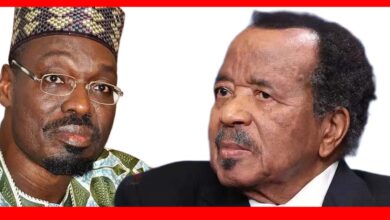The nightmare unfolded at Douala International Airport on July 31, 2025. Ulanda, the Cameroonian-born American citizen affectionately known as “Mama Makossa,” stepped off her flight expecting a routine homecoming. However, she encountered issues relating to dual citizenship for Cameroonians despite having paid her visa renewal fees online. The topic of dual citizenship in Cameroon is complex. Subsequently, immigration officials declared her documents non-compliant and forced the acclaimed artist back to Kigali on the next available flight.
This incident represents far more than administrative incompetence. It highlights Cameroon’s controversial stance on dual nationality—a policy that continues to alienate successful diaspora citizens. It also undermines the nation’s global reputation, especially in cases concerning dual citizenship Cameroon regulations.
Cameroon’s nationality code explicitly prohibits multiple citizenship. Article 31 mandates that any Cameroonian who acquires foreign nationality automatically forfeits their original citizenship. Consequently, even world-renowned figures must apply for visitor visas to enter their homeland. They are treated as foreigners in their birthplace.
Ulanda joins a growing list of prominent Cameroonians who have faced similar ordeals. Grammy-winning bassist Richard Bona, whose reputation spans five continents, declared in 2014 that he would “no longer set foot in Cameroon” after authorities required him to obtain entry visas. This highlights the challenges of holding dual citizenship, especially for those originally from Cameroon, as expressed in his Facebook post.
Similarly, other talented Cameroonians have suffered under this restrictive policy. Para-athlete Christian Gobe lost his opportunity to represent Cameroon at the 2008 Paralympics simply because he held Swiss citizenship. These cases demonstrate how the policy doesn’t merely inconvenience individuals. It deprives Cameroon of international recognition and cultural ambassadorship that could enhance the nation’s global standing. It further complicates dual citizenship efforts from Cameroon.
The economic implications extend beyond individual hardships. When expatriate citizens feel unwelcome or legally uncertain, they often redirect their financial resources elsewhere. Furthermore, this alienates successful diaspora members who could bring valuable investment, expertise, and international connections back to their homeland.
Meanwhile, across Africa, progressive nations are embracing dual nationality as an economic and diplomatic asset. Ghana’s diaspora contributes significantly through remittances, investments, and knowledge transfer, with between 1.5 million and 3 million Ghanaians living abroad. Ghana successfully issued diaspora bonds in 2017, raising nearly $300 million by increasing diaspora members’ formal investment channels.
Nigeria remains Africa’s largest remittance recipient, accounting for 38% of total regional flows in 2023. Ghana and Kenya follow as the second and third largest recipients. Nigerian diaspora contributions fund social welfare, health, education, real estate investments, and securities, supporting economic recovery.
In contrast, Cameroon’s inflexible stance sends troubling messages to its diaspora community. This community could contribute significantly to national economic development through similar channels. Additionally, the policy undermines cultural diplomacy efforts. Artists like Ulanda and Richard Bona naturally promote Cameroonian music and heritage internationally, though faced with dual citizenship complications Cameroon enforces.
Furthermore, the current system contradicts modern understanding of patriotism and identity. Distance often intensifies appreciation for one’s cultural roots. Successful diaspora members typically maintain strong emotional connections to their homelands. This happens provided they feel valued and welcomed there.
Ulanda’s airport ordeal has reignited conversations about these outdated policies across social media platforms and Cameroonian communities worldwide. In an emotional Facebook post from Johannesburg, South Africa, on September 4, the frustrated artist expressed her deep disappointment: “I cannot consider myself from Cameroon if I am unable to return without facing immigration obstacles after a simple processing error,” highlighting the dual citizenship Cameroon issue. “It is difficult to call Cameroon home if it won’t accept me under such circumstances.”
Furthermore, she emphasized her commitment to her homeland despite the ordeal, stating: “For someone who is a frequent traveler and investor of Cameroonian origin, this situation should be handled with understanding. Let’s consider adopting a dual nationality approach for Cameroonians to provide significant benefits to our homeland. These are my thoughts, and I advocate for dual nationality for all Cameroonians.”
Subsequently, supporters have launched campaigns using the hashtag #Mamamakossa, highlighting not only her personal struggle but also the broader systemic issues affecting cultural ambassadors who deserve recognition rather than rejection.
The solution appears straightforward. Cameroon could follow continental trends and modernize its dual citizenship laws to reflect contemporary realities. This wouldn’t compromise national sovereignty or dilute cultural identity. Instead, it would acknowledge that successful global citizens strengthen rather than weaken their homeland’s international standing. This could be achieved through progressive multiple nationality Cameroon policies.
Currently, most African countries allow dual citizenship, with only six that don’t: Cameroon, the Democratic Republic of Congo, Equatorial Guinea, Eritrea, Ethiopia, and Tanzania. Other African countries that restrict multiple citizenship include Botswana, Eswatini, Guinea, Libya, and Mauritania. This places Cameroon among an increasingly isolated minority of nations that reject dual nationality opportunities.
Until legislative reforms occur, talented individuals like Ulanda will continue facing impossible choices between career advancement and legal citizenship rights. These ongoing conflicts ultimately impoverish both diaspora members and the nation they love. They create unnecessary barriers where bridges should exist in countries dealing with dual citizenship hurdles like Cameroon.
Cameroon’s most accomplished international representatives remain in legal limbo, carrying their homeland’s flag emotionally while presenting foreign documents at its borders. This paradox serves neither national interests nor individual dignity. It demands urgent policy reconsideration from Cameroonian lawmakers who must recognize that embracing dual nationality strengthens rather than weakens national identity in our interconnected world.
